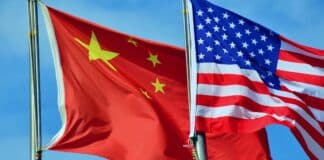What happens when the next big disease rolls around? And what if it’s one that’s actually as deadly as people thought COVID might be? Who can people trust?
It was darkly funny at first how neither corporate media nor their Democrat friends could agree with a single thing President Donald Trump said, no matter how plausible — or even obvious — it was. He realized this, and used it to great effect.
When Trump said America needed to be great, corporate media said it had never been great. The New York Times even launched a massive project to prove this. Although they later had to retract the opening thesis of the project — that the colonists rebelled to preserve slavery — their friends gave them a Pulitzer anyways.
When Trump insulted the vicious and evil MS-13 gang of rapists and child murderers, calling them “animals,” corporate media defended MS-13. Attacking evil international gangs this way is extremely racist, they said. “Bigotry,” Emmy-award-winning journo Jamil Smith intoned in Rolling Stone, “requires that the enemy be made out to be less than human, and Trump has long made use of blurry lines to criminalize entire groups of people.”
When Trump said our European allies needed to contribute to their own defense and pay their bills, corporate media said they didn’t and that this was unfair. The president is threatening global security by asking Europe to be secure, they insisted. NATO will collapse if it’s paid for, they warned.
When Trump killed the Iranian spymaster responsible for more American military deaths than any other living adversary, corporate media mourned his passing. “He was a war hero,” CBS’s Holly Williams intoned in her authoritative Australian accent. CNN’s Fareed Zakaria said he was known as “personally incredibly brave,” and Anderson Cooper said the dead terrorist reminded him of French World War II leader Charles de Gaulle.
In the eyes of our reporting class, every single thing President Trump said — or did — had to be wrong. It started out entertaining and predictable, but could also be troubling, depressing, and enraging, as when reporters played blind to murderous race riots, claiming they were entirely peaceful, or when they refused to admit that the border is a human-smuggling and human-victimizing operation entirely run by foreign criminal cartels. That kind of reporting hurts people badly, and does no service to the causes these reporters hope to champion.
But when COVID-19 came to our shores, their obsession with taking the opposite side of President Donald Trump became very dangerous to our entire country — and is the final crack in their long-fracturing and now-collapsed role as a check on good governance.
The press in America is expected to provide reliable information that its audience can use to make decisions and come to informed views in their day and in their larger lives. Some of these decisions might be mundane, others — like voting and taking care of your family — will be very important. Not only this, but the press in America is expected to expose lies, crime, corruption, and other misdeeds — and to hold powerful private and government officials to account.
In both of these duties, the press in America has demonstrably — and seemingly intentionally — failed us.
When COVID first hit our shores, they attacked Trump as a racist for declaring a travel ban on the source of the virus. When the president said the virus might have come from a lab, the press said he was lying and it didn’t. When he said we’d develop vaccines maybe within a year, they “fact-checked” him false. When he said we were recovering as a country, they said we weren’t. When he supported states reopening, they said we’d die. None of their responses had any basis in fact — they were merely based on a seething hatred for the president.
“Eighty seven percent of stories by U.S. major media outlets are negative in tone,” Dartmouth economics professor Bruce Sacerdote and two other researchers found, “versus 50 percent for non-U.S. major sources and 64 percent for scientific journals.” That means the American press is an outlier — unique among even all the other free countries’ unimpressive media machines.






